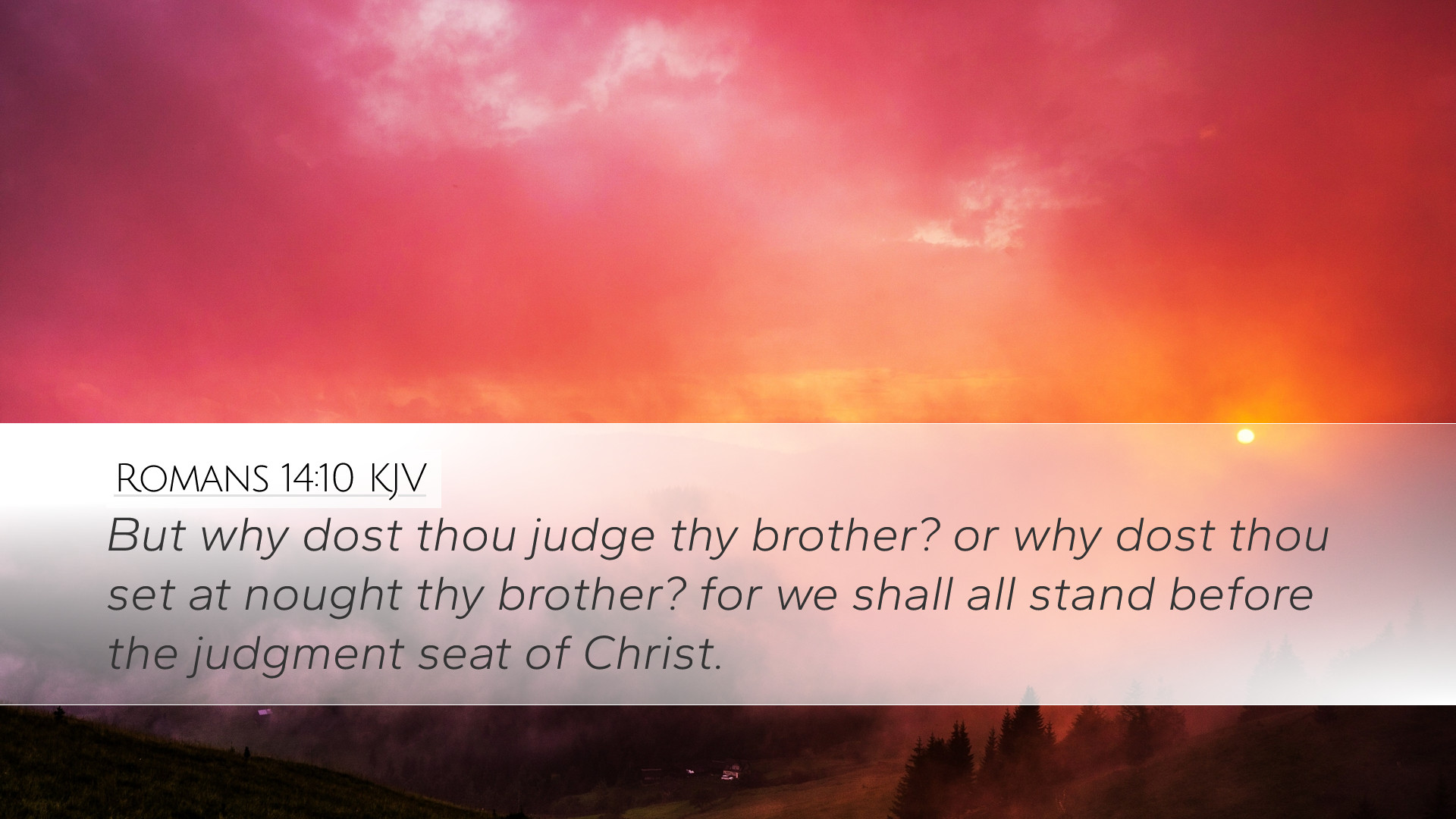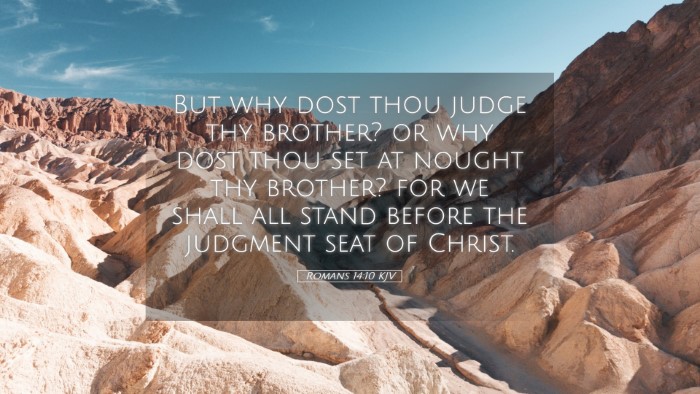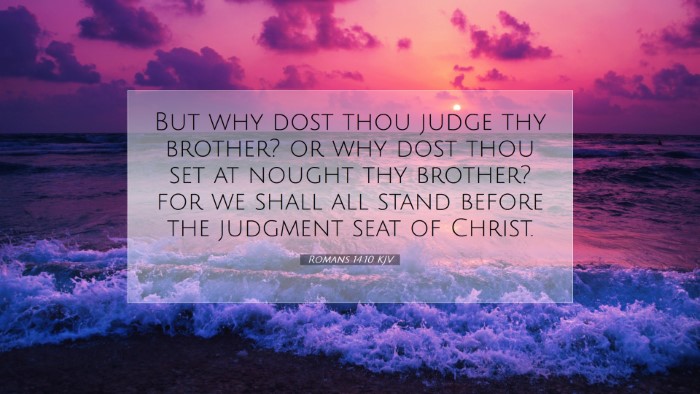Old Testament
Genesis Exodus Leviticus Numbers Deuteronomy Joshua Judges Ruth 1 Samuel 2 Samuel 1 Kings 2 Kings 1 Chronicles 2 Chronicles Ezra Nehemiah Esther Job Psalms Proverbs Ecclesiastes Song of Solomon Isaiah Jeremiah Lamentations Ezekiel Daniel Hosea Joel Amos Obadiah Jonah Micah Nahum Habakkuk Zephaniah Haggai Zechariah MalachiRomans 14:10
Romans 14:10 KJV
But why dost thou judge thy brother? or why dost thou set at nought thy brother? for we shall all stand before the judgment seat of Christ.
Romans 14:10 Bible Commentary
Commentary on Romans 14:10
Verse: "But why dost thou judge thy brother? or why dost thou set at nought thy brother? for we shall all stand before the judgment seat of Christ."
Introduction
The verse Romans 14:10 serves as a pivotal reminder of the humility and grace required in the Christian community. It addresses the tendency to judge and dismiss fellow believers based on scruples of faith and practice. This commentary collates insights drawn from various public domain commentators including Matthew Henry, Albert Barnes, and Adam Clarke, providing a comprehensive theological exploration of the text.
Contextual Overview
In Romans 14, Paul addresses issues of conscience that arise within the Christian community, particularly with respect to dietary laws and the observance of certain days. The apostle emphasizes the importance of liberty in Christ and urges believers to avoid contentious attitudes towards one another. Here, Romans 14:10 critiques the judgmental spirit prevalent among believers that can lead to division.
Verse Breakdown
-
Judgment of Brothers:
Paul questions why one would judge a brother, indicating that such judgment is misplaced. Matthew Henry notes that the context of judging here refers not to righteous discernment but to contempt and unwarranted criticism that can lead to disunity.
-
Setting at Nought:
The phrase "set at nought" signifies treating someone as insignificant. Albert Barnes observes that this reflects a desire to elevate oneself by diminishing others—a perilous spiritual stance that carries implications for communal relationships.
-
The Judgment Seat of Christ:
This phrase illustrates the ultimate accountability each believer has before Christ. Adam Clarke clarifies that while believers may judge one another temporarily, the final judgment rests in Christ’s hands, who possesses both the authority and the divine insight to judge righteously.
Theological Implications
This verse imparts profound theological insights for church leaders and scholars:
-
Unity in Diversity:
The call to forbearance promotes unity while embracing diversity in non-essential beliefs and practices. Henry emphasizes that the acceptance of each other's differences in the body of Christ is fundamental for maintaining harmony.
-
The Nature of Judgment:
The admonition against judgment warns against adopting an attitude of superiority. Barnes highlights that such judgment derives from a lack of understanding of God’s grace in one’s own life.
-
Understanding Accountability:
The reference to the judgment seat of Christ reminds believers of their ultimate accountability to Him. Clarke underscores that life choices, attitudes, and our treatment of others will be evaluated in light of Christ's standards, prompting self-reflection and humility.
Practical Applications for Pastors and Leaders
Pastors and church leaders can draw several practical considerations from this text:
-
Promoting Graceful Dialogue:
Encourage open discussions within the church that allow for various opinions while maintaining a focus on love and grace.
-
Modeling Humility:
Lead by example, demonstrating an attitude of humility and forbearance towards those with differing views, recognizing their intrinsic value as members of the body of Christ.
-
Focus on Common Ground:
In sermons and teachings, emphasize the core tenets of faith, fostering unity centered around Christ rather than controversies over non-essential issues.
Conclusion
Romans 14:10 serves as a powerful reminder for believers to evaluate their attitudes towards one another critically. As we look forward to that day before Christ’s judgment seat, may we strive to exemplify the love, grace, and unity that reflect our shared identity in Him. In fostering an atmosphere of acceptance and understanding, the church can truly embody the heart of the Gospel.


